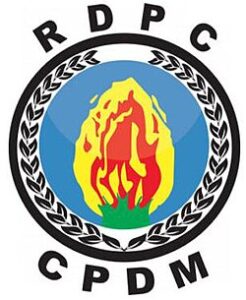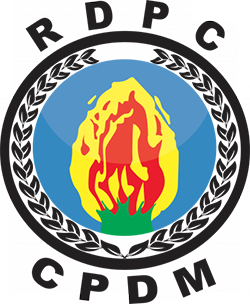MEZAM 2 SECTION CPDM
KNOW MORE ABOUT PARTY HERE.

The Cameroon People’s Democratic Movement (CPDM), known in French as Rassemblement Démocratique du Peuple Camerounais (RDPC), stands as a cornerstone of Cameroon’s political landscape. Established on March 24, 1985, in Bamenda, North West Region, the CPDM emerged from the transformation of the Cameroonian National Union (CNU) under the leadership of President Paul Biya. This reformation aimed to rejuvenate the political environment, promote democratic participation, and reinforce national unity .(Wikipedia, Cameroon Tribune, prc.cm)
Historical Evolution
The CPDM’s inception marked a significant shift from the CNU’s single-party dominance to a more inclusive political framework. President Biya envisioned the CPDM as an assembly of citizens committed to Cameroon’s unity and stability, fostering a democratic society where the populace actively participates in governance .(prc.cm)
Throughout its history, the CPDM has navigated various political challenges, including the introduction of multiparty politics in the early 1990s. Despite these challenges, the party has maintained a dominant presence in Cameroon’s political arena, securing a majority in parliamentary elections and sustaining its leadership through successive presidential terms .
Leadership and Structure
At the helm of the CPDM is President Paul Biya, who has led both the party and the nation since 1985. Under his stewardship, the party has emphasized national unity, democratic principles, and socio-economic development. The CPDM’s organizational structure includes a Central Committee, headed by Secretary General Jean Nkuete, which oversees the party’s strategic direction and operations
The party also boasts a Political Bureau, comprising influential figures who contribute to policy formulation and implementation. Notable members include Cavayé Yéguié Djibril, the long-serving President of the National Assembly, who has been instrumental in legislative processes since 1992 .
Ideology and Vision
The CPDM’s ideology centers on nationalism, populism, and a commitment to democratic governance. The party advocates for a big-tent approach, embracing diverse perspectives to foster inclusive development. Its vision encompasses the consolidation of democratic institutions, promotion of social justice, and enhancement of economic growth to improve citizens’ well-being .
Electoral Performance
Since its establishment, the CPDM has demonstrated electoral resilience, winning successive presidential elections and maintaining a strong parliamentary presence. In the 1992 parliamentary elections, the party secured 88 out of 180 seats, forming a majority through alliances. Subsequent elections have seen the CPDM increase its parliamentary dominance, reflecting sustained public support .
As of 2025, the CPDM is preparing for its eighth presidential election, with President Biya expressing gratitude for the public’s unwavering support and signaling readiness to continue leading the nation .
Challenges and Resilience
Over its four-decade existence, the CPDM has faced internal and external challenges, including party discipline issues and the evolving political landscape. Nonetheless, the party has demonstrated resilience, addressing internal conflicts and adapting to changing dynamics to maintain its relevance and effectiveness .
Prominent Figures
The CPDM’s history is enriched by the contributions of notable members:
Françoise Foning: A trailblazing businesswoman and politician, she led the party’s women’s division and served as Mayor of Douala V, advocating for women’s empowerment and entrepreneurship .
Françoise Puene: Also known as Mamy Nyanga, she is a successful entrepreneur and senator, contributing to the party’s legislative agenda and economic initiatives .
Simon Achidi Achu: Serving as Prime Minister from 1992 to 1996, he played a pivotal role in the nation’s governance and was a key figure in the CPDM’s leadership .(Wikipedia)
Conclusion
The Cameroon People’s Democratic Movement remains a central force in Cameroon’s political sphere, committed to upholding democratic values, fostering national unity, and driving socio-economic development. As it marks its 40th anniversary, the CPDM continues to adapt and evolve, striving to meet the aspirations of the Cameroonian people and navigate the complexities of modern governance.
